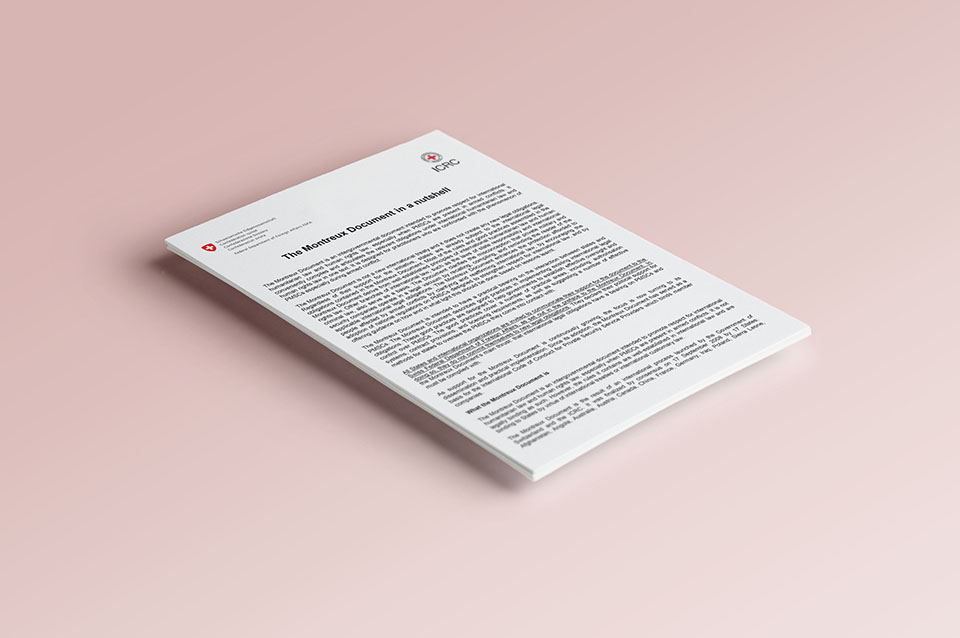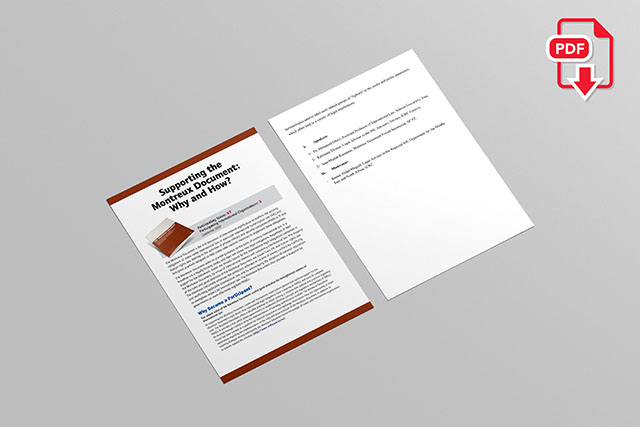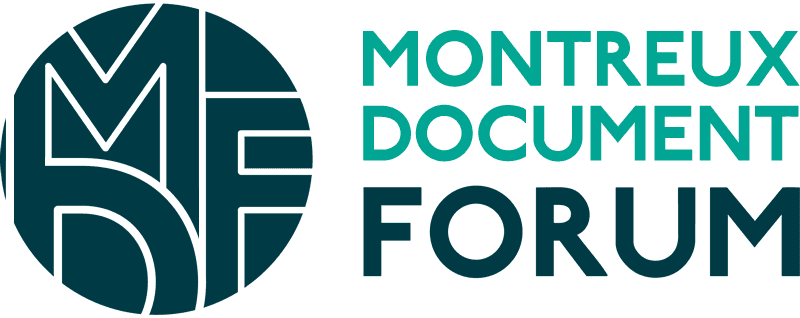ABOUT THE DOCUMENT
The Montreux Document reaffirms States' existing obligations under international law, in particular international humanitarian law (IHL) and human rights law, regarding the activities of private military and security companies (PMSCs) in situations of armed conflict.
It also lists good practices to assist States in taking national measures to implement these obligations. The Montreux Document, a joint initiative of Switzerland and the International Committee of the Red Cross (ICRC) in 2006, clarifies the misconception that PMSCs operate in a legal vacuum by recalling and compiling the relevant international obligations. It is a practical and realistic contribution to promoting respect for international humanitarian and human rights law and provides governments with a model for effectively regulating PMSCs. Finalised in 2008, the Montreux Document aims to provide guidance on the basis of existing international law and is not a legally binding treaty. Regardless of their support for the initiative, states are already subject to the international legal obligations contained in the Montreux Document. Although the Document was developed with the fact that PMSCs operate in situations of armed conflict in mind, it can also be instructive for post-conflict and other comparable situations. Moreover, most of its good practices are ideally implemented in peacetime.
CONTENT
The Montreux Document outlines the responsibilities of three main types of states: Contracting States (countries that engage PMSCs), Territorial States (countries on whose territory PMSCs operate) and Home States (countries where PMSCs are headquartered or based). The document also contains sections on all States and international organisations, PMSCs and PMSC staff. Although the document is primarily aimed at states, the good practices may be useful to other actors such as international organisations, civil society, companies contracting PMSCs and PMSCs themselves.
The first part of the paper recalls the relevant legal obligations of states towards PMSCs. These obligations are mainly drawn from existing international humanitarian and human rights agreements, as well as from customary international law.
The second part contains a description of good practices that aim to guide and assist States in regulating PMSCs. Good practices include determining which services can and cannot be contracted out to PMSCs, requiring appropriate training, establishing licensing requirements, and adopting measures to improve oversight, transparency and accountability of PMSCs.


Template to express support for the Montreux Document (Arabic, English, French, Russian, Spanish, Portuguese)
In October 2008, the Montreux Document was presented to the United Nations General Assembly and Security Council by the Permanent Representative of Switzerland to the UN. The Document and its accompanying letter were translated into the six official UN languages: Arabic | Chinese (Standard Chinese) | English | French | Russian | Spanish | Portuguese

